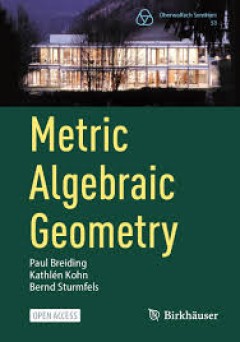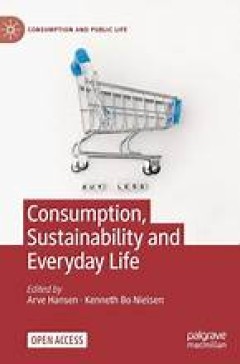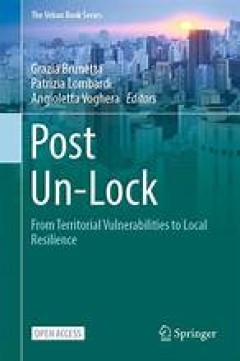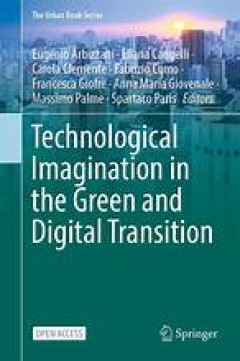Filter by

Vermin, Victims and Disease : British Debates over Bovine Tuberculosis and Ba…
This open access book provides the first critical history of the controversy over whether to cull wild badgers to control the spread of bovine tuberculosis (bTB) in British cattle. This question has plagued several professional generations of politicians, policymakers, experts and campaigners since the early 1970s. Questions of what is known, who knows, who cares, who to trust and what to do ab…
- Edition
- 1
- ISBN/ISSN
- 9783030191863
- Collation
- XXIV, 366 hlm,: ill, lamp; 21 cm
- Series Title
- -
- Call Number
- -

Modernising European Legal Education (MELE) : Innovative Strategies to Addres…
This open access book presents innovative strategies to address cross-cutting topics and foster transversal competences. The modernization of European legal education presents a compelling challenge that calls for enhanced interdisciplinary collaboration among academic disciplines and innovative teaching methods. The volume introduces venues towards education innovation and engages with complex…
- Edition
- 1
- ISBN/ISSN
- 9783031408014
- Collation
- VIII, 303 hlm,: ill, lamp;
- Series Title
- -
- Call Number
- -

Achieving the Paris Climate Agreement Goals : Global and Regional 100% Renewa…
This open access book presents detailed pathways to achieve 100% renewable energy by 2050, globally and across ten geographical regions. Based on state-of-the-art scenario modelling, it provides the vital missing link between renewable energy targets and the measures needed to achieve them. Bringing together the latest research in climate science, renewable energy technology, employment and res…
- Edition
- 1
- ISBN/ISSN
- 9783030058432
- Collation
- LIX, 491 hlm,: ill, lamp;
- Series Title
- -
- Call Number
- -

The European Landing Obligation: Reducing Discards in Complex, Multi-Species …
This open access book provides a comprehensive examination of the European Landing Obligation policy from many relevant perspectives. It includes evaluations of its impacts at economical, socio-cultural, ecological and institutional levels. It also discusses the feasibility and benefits of several potential mitigation strategies. The book was timely published, exactly at the time where the Land…
- Edition
- 1
- ISBN/ISSN
- 9783030033088
- Collation
- XIX, 431 hlm,: ill, lamp;
- Series Title
- -
- Call Number
- -

Assessment Framework for People-Centred Solutions to Carbon Neutrality : A Co…
This open access book presents a catalogue of over one thousand indicators which can be used by cities' public administrators to monitor and evaluate social innovation action plans to support people-centred, collaborative or co-designed solutions to lower carbon emissions. Indicators are clustered according to a framework of social innovation solutions for climate neutrality at city level, deve…
- Edition
- -
- ISBN/ISSN
- 978-3-031-53111-8
- Collation
- IX, 110
- Series Title
- SpringerBriefs in Applied Sciences and Technology (BRIEFSAPPLSCIENCES)
- Call Number
- 338 BRE a

Metric Algebraic Geometry
Metric algebraic geometry combines concepts from algebraic geometry and differential geometry. Building on classical foundations, it offers practical tools for the 21st century. Many applied problems center around metric questions, such as optimization with respect to distances. After a short dive into 19th-century geometry of plane curves, we turn to problems expressed by polynomial equatio…
- Edition
- -
- ISBN/ISSN
- 9783031514623
- Collation
- XIV, 215
- Series Title
- 53
- Call Number
- -

Agroecological Transitions: From Theory to Practice in Local Participatory De…
This Open Access book presents feedback from the ‘Territorial Agroecological Transition in Action’- TATA-BOX research project, which was devoted to these specific issues. The multidisciplinary and multi-organisation research team steered a four-year action-research process in two territories of France. It also presents: i) the key dimensions to be considered when dealing with agroecologi…
- Edition
- 1
- ISBN/ISSN
- 9783030019532
- Collation
- XVI, 335 hlm; ill., lamp.,
- Series Title
- -
- Call Number
- -

Consumption, Sustainability and Everyday Life
This open access book seeks to understand why we consume as we do, how consumption changes, and why we keep consuming more and more, despite the visible damage we are doing to the planet. The chapters cover both the stubbornness of unsustainable consumption patterns in affluent societies and the drivers of rapidly increasing consumption in emerging economies. They focus on consumption patterns …
- Edition
- 1
- ISBN/ISSN
- 978-3-031-11069-6
- Collation
- oer.unej.ac.id
- Series Title
- Consumption and Public Life
- Call Number
- 306

Post Un-Lock
This open access book builds a framework that holds together numerous open issues in territorial planning: from the understanding of territorial, landscape, environmental and climatic dynamics to the analysis of local vulnerabilities, to the use of modern survey techniques to support planning. What is the role of urban and regional planning in achieving the sustainable development goals of our …
- Edition
- 1
- ISBN/ISSN
- 978-3-031-33894-6
- Collation
- oer.unej.ac.id
- Series Title
- The Urban Book Series
- Call Number
- 324

Technological Imagination in the Green and Digital Transition
This open access book addresses the pressing need for sustainability in urban development and the use of technology, with cities to serve as the main stage for strategies that seek to meet the targets and the cross-sector priorities indicated in the EU’s Next Generation program, all in pursuit of a solid recovery on the part of the European economy, along lines of ecological transition, digit…
- Edition
- 1
- ISBN/ISSN
- 978-3-031-29515-7
- Collation
- oer.unej.ac.id
- Series Title
- The Urban Book Series
- Call Number
- 320
 Computer Science, Information & General Works
Computer Science, Information & General Works  Philosophy & Psychology
Philosophy & Psychology  Religion
Religion  Social Sciences
Social Sciences  Language
Language  Pure Science
Pure Science  Applied Sciences
Applied Sciences  Art & Recreation
Art & Recreation  Literature
Literature  History & Geography
History & Geography